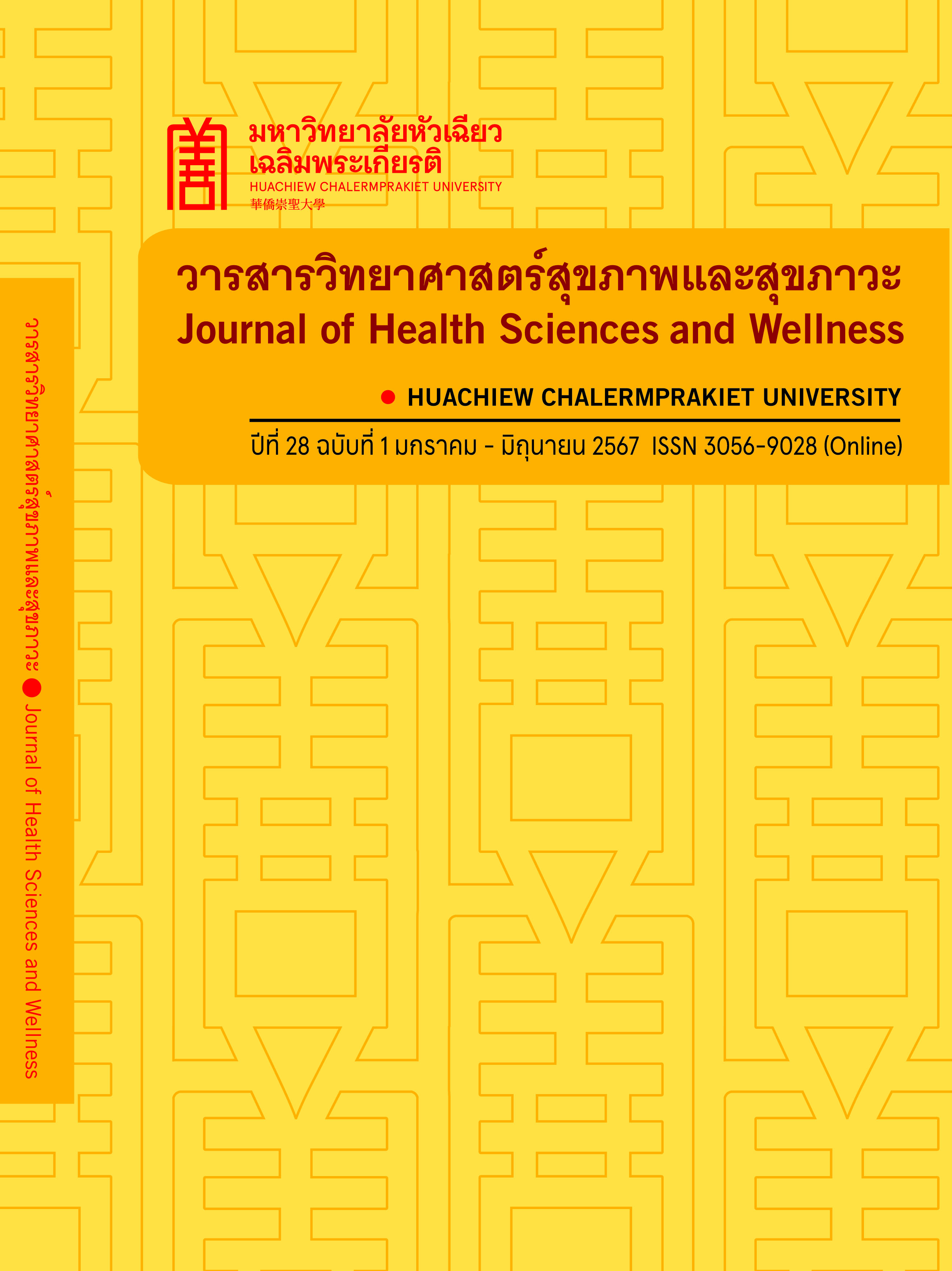Predictive Factors Influencing the Perceived Care Burden of Primary Caregivers of School-Age Children with Specific Learning Disabilities
Keywords:
perceived burden of care primary, caregivers school-age, children with specific learning disabilitiesAbstract
This study is a descriptive research project aimed at investigating factors that predict theperceived care burden among primary caregivers of school-aged children with specific learning disabilities (SLD). The study, titled "Predictive Factors Influencing the Perceived Care Burden of Primary Caregivers of School-Age Children with Specific Learning Disabilities," was validated for content by experts, with reliability values of 0.91 and 0.86. The Cronbach's alpha coefficients were calculated to be 0.88 for both. Data collection occurred from December 2022 to March 2023, for a total of four months. The statistical methods used in data analysis included descriptive statistics and Stepwise Multiple Regression.
The research findings indicated that the perception of stigma (β=.348), social support (β=.306), and the age of school-aged children with SLD (β=.117) can together predict the perception of care burden of the primary caregiver at 24.9% (Adj. R2= .249, p<.001). Therefore, it is essential that relevant agencies, schools, and public health personnel should be aware of and consider the importance of factors such as the perception of stigma, social support, and the age of children with SLD.
Downloads
References
DSM-5 American Psychiatric Association. Diagnostic and statistical manual of mental disorders. Arlington: American psychiatric publishing; 2013.
Moll K, Kunze S, Neuhoff N, Bruder J, Schulte-Ko rne G. Specific learning disorder: prevalence and gender differences. PLoS One. 2014;9(7):e103537.
Altarac M. Saroha E. Lifetime prevalence of learning disability among US children. Pediatrics. 2007;119(Suppl.):s77-83.
Ministry of Public Health. Promoting screening and caring for mental problems in Thai children [internet]. 2014 [cited 2014] Available from: https://th.rajanukul.go. th/_admin/File (in Thai)
Lababang W. Psychology and guidance of primary school children. Bangkok: O.S. Printing House; 1992. (in Thai)
Jongpaisansakul P, Suppapitiporn S. Stress of custodians of disabled children who attend special education center of the central region, Bangkok. Chula Med J. 2014;58(3):355-69. (in Thai)
Daengnamku D. Stress of parents in raising children with attention deficit hyperactivity disorder. Bangkok: Chulalongkorn University; 2006. (in Thai)
Siripornphanit W. Get to know this special person and little LD [internet]. 2023 [cited Oct 2023] Available from: https://www.rakluke.com/component/tags/tag/2020-05-29-09-51-46.htm (in Thai)
Piyasin N, Ningsanon W. Children with disability. Bangkok: Pentagon Advertising; 2013. (in Thai)
Bhargava S, Mehta S. Perception of families of children with specific learning disorder: an exploratory study. Indian J Psychol Med. 2018;40(5):406-13.
Chien WT, Isabella YML. An exploratory study of parents' perceived educational needs for parenting a child with learning disabilities. Asian Nurs Res. 2013;7:16-25.
Siriratrekha T. LD...learning disabilities 2017 [internet] 2017 [cited 2022 Feb 1] Available from: http://www.happyhomeclinic.com/sp04-ld.htm
Radhey S, Deepika G. Stress and family burden in mothers of children with disabilities. Int. J Interdiscip Multidiscip. 2014;1(4):152-9.
Zarit SH, Todd PA, Zarit JM. Subjective burden of husbands and wives as caregivers: a longitudinal study. J Gerontol Nurs. 1986;26:260-6.
Tiengsomboon U. Factors related to the burden of caring for primary caregivers of school-aged children with learning disabilities. research report, fiscal year 2023. Ubon Ratchathani: Faculty of Nursing Rajabhat University; 2023. (in Thai)
Banga G, Ghosh S. The impact of affliate stigma on the psychological well-being of mothers of children with specific learning disabilities in India: the mediating role of subjective burden. Appl Res Intellect Disabil Disabilities. 2017;30(5):958-69.
Krejcie RV, Morgan DW. Determining sample size for research activities. Educ Psychol Meas. 1970:30(3):607-10.
Dillman DA. Mail and internet surveys: the tailored design method. 2nd ed. New York: John Wiley and Sons; 2000.
Lazarus RS, Folkman S. Stress, appraisal, and coping. New York: Springer publishing company; 1984.
Mak WWS, Cheung RYM. Affliate stigma among caregivers of people with intellectual disability or mentalillness. J Appl Res Intellect Disabil. 2008;21:532-45.
Health Systems Research Institute (HSRI). Problems, needs, and access to services of children with disabilities in the community, and the manpower situation in health rehabilitation. Nonthaburi: Health Systems Research Institute; 2016. (in Thai)
Pender NJ, Murdaugh CL, Parson MA. Health promotion in nursing practice. 5thed. New Jersey: Pearson Education, Inc; 2006.
House JS. Work stress and social support. California: Addision-Wesley; 1981.
Chandrathip R, Phongjaturawit U, Chaiyamongkol N. Factors predicting the burden of caregivers of children with developmental delays. Faculty of Nursing J Burapha University. 2020;28(2):52-63. (in Thai)
Wannakit N. Children's literature. Nonthaburi: Inthanin; 2019.
Downloads
Published
How to Cite
Issue
Section
License
Copyright (c) 2024 Journal of Health Sciences and Wellness

This work is licensed under a Creative Commons Attribution-NonCommercial-NoDerivatives 4.0 International License.
บทความที่ได้รับการตีพิมพ์เป็นลิขสิทธิ์ของวารสารวิทยาศาสตร์สุขภาพและสุขภาวะ
ข้อความที่ปรากฏในบทความแต่ละเรื่องในวารสารวิชาการเล่มนี้เป็นความคิดเห็นส่วนตัวของผู้เขียนแต่ละท่านไม่เกี่ยวข้องกับมหาวิทยาลัยหัวเฉียวเฉลิมพระเกียรติ และคณาจารย์ท่านอื่นๆในมหาวิทยาลัยฯ แต่อย่างใด ความรับผิดชอบองค์ประกอบทั้งหมดของบทความแต่ละเรื่องเป็นของผู้เขียนแต่ละท่าน หากมีความผิดพลาดใดๆ ผู้เขียนแต่ละท่านจะรับผิดชอบบทความของตนเองแต่ผู้เดียว




